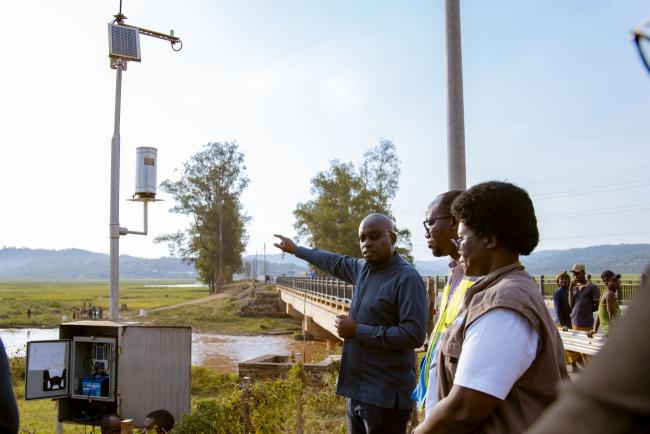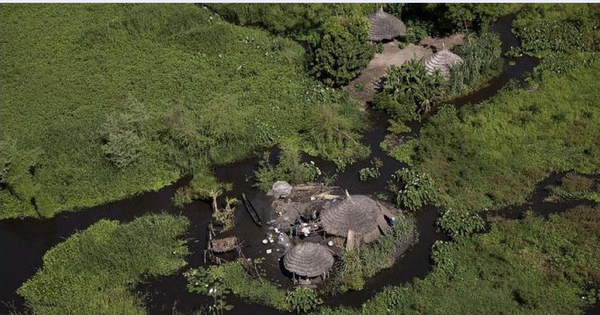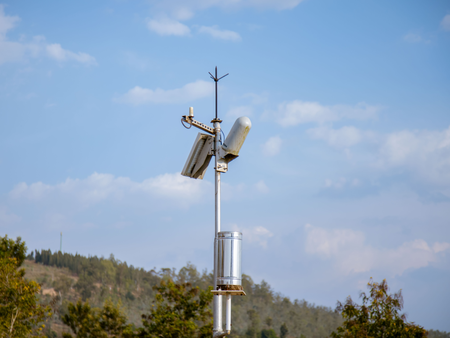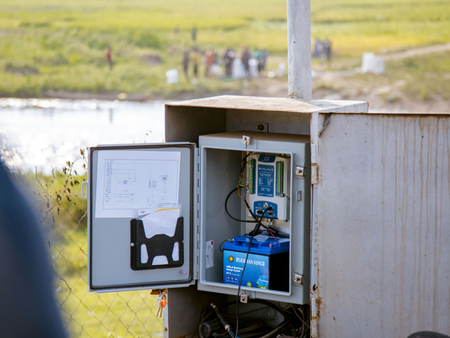Building Climate Resilience in the Nile Basin: NBI’s Contribution Ahead of COP30

As the world gathers for COP30, the Nile Basin stands as strong evidence of how regional cooperation can build climate resilience in shared water systems. Stretching across 11 countries and sustaining over 300 million people, the Basin is already feeling the heat of climate change through worsening droughts, floods, and rising temperatures that threaten lives, ecosystems, and economies.
The Challenge: A Basin Under Climate Pressure
Climate change is disrupting the Nile’s delicate water cycle. From the Mau Escarpment, the Rwenzori Mountains and Ethiopian Highlands, to wetlands including the Sudd and farmlands downstream, the impacts are severe: loss of livelihoods, reduced agricultural yields, and mounting pressure on already scarce water resources.
Despite significant investments in water infrastructure, including dams, irrigation systems, and wells, many national plans still overlook climate variability. This leaves communities and assets vulnerable, undermining sustainable development and regional stability.
NBI’s Response: Science-Driven Climate Resilience
The Nile Basin Initiative (NBI), a partnership of 10 Nile riparian states, is leading a coordinated, data-driven response to strengthen climate resilience and disaster preparedness across the Basin. Here are some of our initiatives:
1. Real-Time Data and Forecasting Systems
NBI operates a Regional Hydrological Monitoring System that delivers real-time data on water quality and water quantity to Member States, improving responses to floods and droughts. Working closely with the Regional Expert Working Group on Hydrology, IGAD/ICPAC, World Meteorological Organization, NBI has enhanced seasonal and hydrological forecasting and early warning, publishing the Nile Basin Seasonal Hydrological Outlook to save lives and livelihoods.
2. Upgraded River Flow and Flood Forecasting
Through its upgraded seasonal river flow forecasting system, NBI enables governments to plan dam operations, cropping cycles, and infrastructure safety. In the Eastern Nile, expanded early warning systems now provide three-day rainfall predictions and flood alerts across 35 sites and 55 catchments, supported by hazard and vulnerability mapping in 16 high-risk areas.
3. Daily Flood and Drought Forecasts
NBI issues daily flood forecasts during the rainy season, supported by training for young hydrologists from Ethiopia, Sudan, and South Sudan. The Initiative has also developed a Drought Early Warning System (DEWS) that uses satellite data to track moisture stress—offering governments a vital tool for anticipating water scarcity.
4. Flash Flood Hotspots and Local Preparedness
Across the Nile Equatorial Lakes region, NBI has mapped flash flood hotspots in eight countries and created a basin-wide early warning system. This platform sends 48-hour alerts to national networks, helping local authorities respond swiftly. New flood risk assessments for nine countries and training of 55 experts have further strengthened national and regional capacity.


5. Safer Infrastructure Through Design Flood Analysis
For the first time, NBI has developed tools and guidelines for Design Flood Analysis, a process that estimates the magnitude of potential floods to guide the safe design of bridges, dams, and drainage systems. This is crucial as extreme events increase dam failure risks across the Basin.
Collaborating for a Climate-Resilient Future
Since 2023, NBI has also been contributing to the World Bank–funded Regional Climate Resilience Programme for Eastern and Southern Africa, aimed at reducing the human and economic toll of climate shocks.
As the global community prepares for COP30, NBI’s experience underscores the importance of regional cooperation, science-based planning, and shared knowledge in tackling the water-climate nexus.
The Nile Basin Initiative continues to prove that data, dialogue, and joint action can transform climate risks into resilience, safeguarding people, ecosystems, and economies for generations to come.
The Nile Basin Initiative is grateful to its partners, which include the World Bank under the Nile Cooperation for Climate Resilience (NCCR) project through the Cooperation in International Waters in Africa (CIWA) Trust Fund, BMZ/GIZ, the Global Environment Facility and the United Nations Development Programme.
